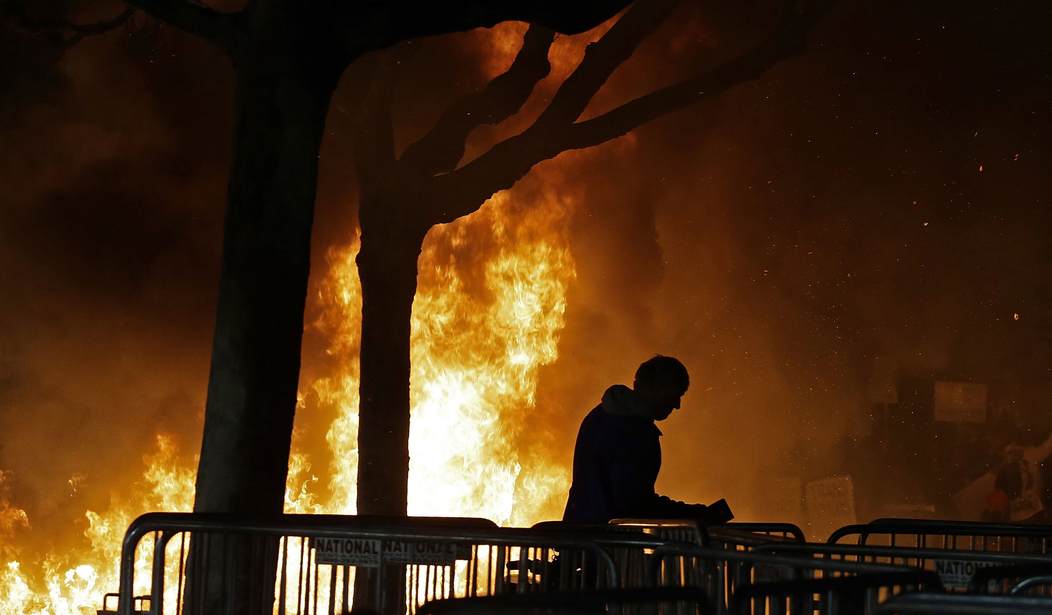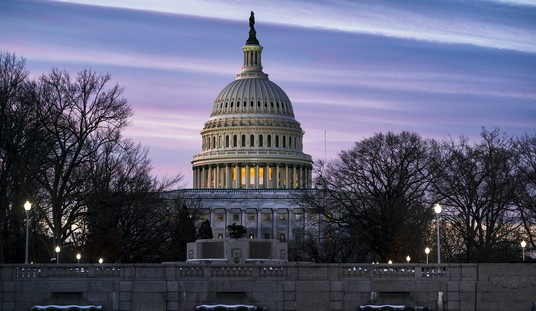Over a decade ago, Hans von Spakovsky and I published the “Every Single One” series here at PJ Media. It took a federal lawsuit by PJ Media to obtain the resumes of all the new Eric Holder-hired lawyers in the Civil Rights Division. We documented the radical progressive backgrounds of every single one of Holder’s new lawyers in the so-called neutral “civil service.”
The series exposed the “swamp” before the term swamp was fashionable. We had seen the problem up close when we both worked inside the Department of Justice Civil Rights Division. Eventually, even the DOJ Inspector General urged the Obama administration to change course and hire a more ideologically diverse attorney pool.
Of course, the Obama administration ignored the suggestion because there was a fundamental transformation to complete. Now, we find ourselves in 2023, and the problem has only gotten worse.
A radicalized civil service is downstream from radicalized elite law schools. For the last six months, Hans and I have turned to what is happening in the nation’s top 10 law schools, asking, “Do They Teach Law Anymore?”
I covered the top-ranked law school—Yale, then Chicago, Harvard, and NYU. Hans covered number two, Stanford, and also Columbia, Penn, and UVA. (If you missed any of the madness catalog, click a link.)
Radicalization of law curricula is a serious and underexamined threat to the rule of law. The danger has moved beyond mere “liberal” professors from a decade ago. Law schools now teach classes designed to deconstruct the very foundations of our American system. From PJ Media:
The tactics that are stamping out speech arise from teachings that are increasingly revolutionary. Law school courses now commonly reject American norms such as free speech, fact-based decision-making, individualism, and Anglo-American legal principles that created the most benign and beneficial form of government in human history. Mob tactics combined with intellectual groundings in authoritarianism are a dangerous and incendiary mix. They threaten freedom in a way our nation has not previously encountered.
I have arrived at number nine, my final installment in the series—the University of California at Berkeley.
What stands out about Berkeley is that the more radical and useless the class, the more people who tend to take it.
Berkeley publishes the number of students enrolled in each class. Let’s start at the low end of the spectrum: Business Law.
In keeping with the larger trends Hans and I discovered, elite law schools no longer emphasize law classes that teach future lawyers how to practice law. Instead of evidence, they focus more on revolution. But Berkeley, to their credit, has a useful course in business law for start-ups. Students in Advanced New Business will learn practical tools such as:
…business regulation, risk management, contracts, intellectual property, and taxation. Areas of business management will include financing, marketing, business planning, and evaluating financials. Mixed areas of law and business management will be examined, including entity formation, capital formation, and tax planning.
This will be useful information for the single Berkeley law student who signed up for the class. That’s right—enrollment, according to the Berkeley Law School page, is just one single student.
That can’t match the twenty-four law students taking Mindfulness, Self-Care, and Belonging in the Legal Profession. The course catalog, and I’m not making this up:
In this course we will use techniques from mindfulness practice to cultivate inner steadiness, resilience, and compassion for ourselves and others. Through mindfulness practice, we will explore the impact of barriers to belonging in the legal profession such as systemic racism and marginalization along other identity axes. We will also look at how we might use mindfulness and self-reflection to counter the effects of impostor phenomenon and the inner critic.
I had to look up “identity axes.” Perhaps it would be a throwing game at the company retreat? But as expected, the term identity axes is complete bull excrement. Identity axes is a fake term designed to justify the further deconstruction of objective truth. Let’s save “imposter phenomenon” for another day when we don’t have so much ground to cover littered with cow pies.
No top-ten law school would be complete without a course in Critical Race Theory. Cal Berkeley takes it one step further and requires students to “pre-interview” before they sign up for the class. Federalist Society members, Martin Luther King devotees, and anyone suffering from “contemporary hysteria” need not apply. Twenty-four students passed Professor Khiara Bridges’ ideological orthodoxy test this semester.
This seminar explores Critical Race Theory, covering core texts as well as exploring new directions. Topics will include the nature of race and racism; the inseparable connections between race and other social markers such as gender, sexual orientation, class, and disability; and the contemporary hysteria around CRT.
Interested students should email Professor Bridges – [email protected] – a short paragraph of no more than 200 words explaining your relevant background experience and interest in the seminar. Please make the subject line of your email “Application for Critical Race Theory.” If selected, you will be sent the course control number to enroll.
Another core course at every top-ten law school we have examined involves promoting abortion for course credit. Not one law school had a course that helped students work on the pro-life side. Berkeley lays naked the purpose, naming the course Organizing for Reproductive Rights and Justice. “Abortion Law” was just too boring. Enrollment is 19, and I’ll guess that all 19 sing from the same songbook.
This course will survey the legal and political strategies that are being mobilized to protect reproductive rights, and secure the broader agenda of reproductive justice, following the Supreme Court’s decision in Dobbs. It will focus in particular on how coalitions are being constructed, and how those not previously politically active are being engaged: to craft and support ballot issues, to support state judicial candidates, to address restrictive state legislation, and to secure an agenda that also encompasses funding, disparities in reproductive health and maternal/infant outcomes, and birthing choices.
Not without some irony, law students at Berkeley can also take Foundations of a Moral Philosophy.
This course aims to provide a graduate level introduction to foundational issues in contemporary moral philosophy, with special emphasis on Kantian and utilitarian/consequentialist theory, although we will also consider issues in moral psychology.
Immanuel Kant, naturally. Twelve more students are studying Kant’s utilitarianism than the single student taking business law.
If Berkeley law students want to take more classes that won’t help them develop any skills as a lawyer, they can join the 15 students enrolled in Poetic Justice: Dostoevsky, Nabokov and Literature in the Shadow of the Law.
The focus will be on novel reading – Crime and Punishment, Lolita, Pnin – and on texts where crime, judgment and punishment assume particular procedural, narrative, moral or metafictive importance. We will pay particular attention to the themes of transgression, healing and vengeance and how they play out in legal and metafictive contexts.
But will these fifteen students learn the difference between past recollection recorded and present recollection refreshed? I’ll wager no.
The big draw at Berkeley this semester seems to be leftist Hollywood. That’s why a whopping 41 law students are enrolled in Environmental Health Law Through Film. Students earn course credit for binging on the best that the Hollywood left has to offer. The course catalog:
Why do so many kids have asthma? Why is aggressive brain cancer becoming more common? Why do dangerous beauty products preferentially harm BIPOC women? Why is human fertility decreasing by 1% per year?
Through the lens of environmental feature films and documentaries, this course will discuss the legal structures that under-protect our environmental health and that magnify health inequity. Films are likely to include Erin Brockovich (toxic air emissions), Dark Waters (contaminated drinking water), Into the Weeds (pesticide exposure); Gather (Native American food systems), The People v. Agent Orange (weaponization of toxics), and the HBO Max docu-series Not So Pretty (hazardous cosmetics and personal care products).
I might need to stream “Gather.” I’d love to learn more about Native American food systems. My knowledge is, unfortunately, limited to “Dances With Wolves.”
After the students watch the films, they might consider suing a corporation. Thankfully, Berkeley offers a course just for that, called… Suing Corporations.
This practitioner-led course will teach aspiring affirmative litigators to investigate, serve, conduct discovery against, and collect judgments from corporate defendants. Students will gain introductory knowledge of business organizations, corporate accounting, bankruptcy, and California civil procedure, and will have opportunities to practice fundamental litigation skills such as propounding and responding to discovery, meeting and conferring, taking deposition testimony, and preparing a case for trial.
A rare hat tip at Berkeley for practicality.
Once the students have drained corporate America dry, they can reorient public companies toward unprofitable ideological agendas. Berkeley has a course for that, too: Climate Change and Corporate Governance Reform. The course catalog:
Current estimates are that $3.5T per year (up from $1.5T) must be invested in climate solutions and infrastructure to have any hope of meeting the 1.5C goal set by the Paris Climate Accord. What are the legal tools available to investors and companies that will help in ensuring that capital dedicated to the goals actually reduces emissions? We will explore new forms for aggregating capital for climate as well as mechanisms that can be employed by asset managers to align financial with climate goals. We will examine the various types of securities – from green bonds to performance-linked bonds to pay -for performance impact securities – that are being employed in this space.
I’m done, and I’m worried—deeply. This is my last in this series, and Hans von Spakovsky will soon bring you number 10. But each top-10 law school piece has been harder and harder to write. What started out as a farcical jaunt through crazy course catalogs has made me more pessimistic about the future of the rule of law and limited government.
Radicals are graduating from elite law schools. They are boring into every American power node. Today, these revolutionary radicals are law students at the schools we have exposed or are judicial clerks, Justice Department lawyers, Hill staffers, or Big Law associates. They are fueled and consumed with the deconstructive crackpottery they have learned at Harvard, Yale, and Berkeley that we have documented.
Tomorrow they will be judges, attorneys general, senators, and Big Law partners with fat donation portfolios. In the not-distant future, the entire swath of America’s elite institutions may be governed by a majority, at least, of these deconstructive authoritarians.
Because we did not have the firewalls in place to stop it when stopping it could have been a benign affair, we will have to stop them when they are far more dangerous and powerful and when our maneuverability to stop them is more limited. It may be the fight when the American Dream hangs in the balance.









Join the conversation as a VIP Member